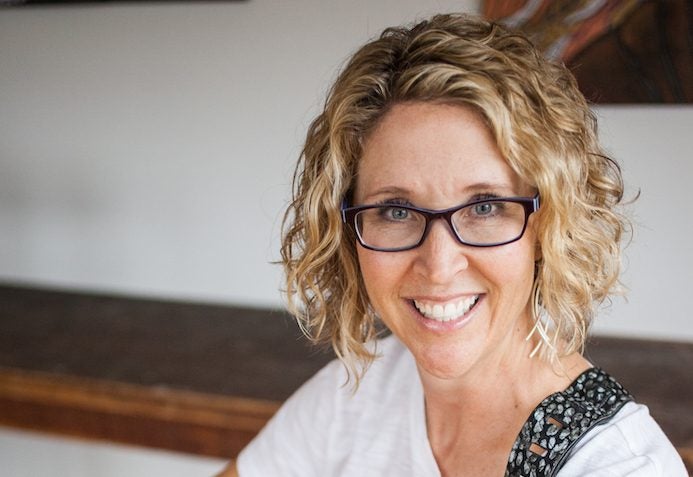SMITH: My daughter is disappointed, and that’s OK
Published 12:33 pm Friday, October 2, 2020

- Erin Smith is the owner of the OM place in Winchester, the author of “Sensible Wellness” and the online host of the OM channel. Follow her on Twitter @erinsmithauthor.
|
Getting your Trinity Audio player ready...
|
2020 has been a season of disappointment. We’ve all fallen victim to The Year of Cancellations, but my teenage daughter has had more than her share.
Her KUNA trip fell through. Our family concerts were rescheduled. The yoga retreat she helps me with was postponed, then nixed. School morphed from an in-person experience to a virtual one.
But none of these were as disappointing to Izzie as the cancellation of Burnamwood, a Presbyterian Church camp in Irvine and Izzie’s home away from home.
Growing up, my brother and I spent our summers there canoeing, playing Capture the Flag by flashlight, weaving God’s Eyes with popsicle sticks to hang on the tree come Christmas.
We sang “Father Abraham” each morning and the Burnamwood theme song each night around the campfire.
This was where I learned the backstroke, how to identify poison ivy, the trick of laying your s’mores near – but not in – the flame to melt the chocolate evenly.
In every photo from that time, my face is sunburned, my grin is genuine and the mosquito bites on my legs are dotted in calamine lotion.
The people I met there are dear friends to this day.
It was one of the greatest pleasures of my life to introduce Izzie to Burnamwood, who loved it even more than me.
When she was 5, I asked her what she wanted to be when she grew up and, without missing a beat, she replied, “A Burnamwood counselor.”
One of the reasons she chose the guitar that year as her instrument was that a good campfire needs a guitar.
She would easily tell you it’s her favorite three weeks of the year.
Fast forward to 2020, where she is now 15, finally old enough to be a CIT – counselor-in-training.
This means that she was planning to spend the entire summer in Irvine, 10 weeks in all.
She has spent the last two years doing odd jobs to make enough money to buy a new sleeping bag, a water bottle large enough for the Burnamwood sticker and a camping hammock.
But camp was not to be.
She was depressed for a few days. She cried and she felt through the unfairness of it all.
And then she simply moved on.
2020 is the perfect opportunity to teach our children to deal with disappointment.
If we, as parents, fall into the victim trap, we teach our children learned helplessness, conditioning them to believe that every situation is unchangeable or inescapable.
It teaches them that they have no control over their own emotional responses and trains them to assume the worst is yet to come.
This isn’t the only way.
We can choose instead to model learned hopefulness, empowering them by helping them build resilience and become people who bounce back from adversity more quickly.
Learned hopefulness reminds us that, while we cannot always control our circumstances, we can always control how we respond to those circumstances.
Within a Judeo-Christian framework, hope is seen in terms of salvation, in trusting that there is something larger than us guiding our lives and rewarding us after death.
In psychology, hope refers to the ability to create and adjust goals as needed.
But the origin of the word carries a darker shadow. Ἐλπίς or Elpis, is the Greek Goddess of Hope.
Elpis shows up as a minor character in numerous tales of death, grief and struggle.
She is the fatherless child of the Goddess of Night. Her sisters are the Fates, the three demons that decide how long each of us shall live. Her brother is the God of Doom.
Her whole family is inextricably linked to suffering.
Elpis is best known for her role in Pandora’s story.
You might remember that Zeus punished Prometheus’ family for stealing fire from Mt. Olympus. He gifted Pandora — Prometheus’ sister-in-law — a box, but cautioned her to never open it.
Curiosity won, and she peeked inside.
Out flew every misery that man now knows: pain, war, injustice, hatred, sickness, misfortune, grief.
In horror, Pandora slammed the box lid closed, but not before the miseries had escaped.
The only thing left in the box was hope, where it rests to this day, the only thing allowing humans to face life’s hardships.
This story paints Elpis as a goddess of optimism and fulfilled expectations.
But the Greek spelling of her name – Ἐλπίς – actually means foreboding, dread or disappointment.
All this to say that disappointment is hope’s flip side. One cannot exist without the other.
We require disappointment to practice learned hopefulness.
We exist in a society of privilege, and many parents in my generation have been taught to run from suffering at all costs and under no circumstances should we ever allow our children to suffer.
But disappointment is inevitable, and our children are tougher and more adaptive than we give them credit for.
Of course, toxic positivity isn’t helpful or healthy either. We shouldn’t teach our kids that they should be happy and optimistic at every moment. Disappointment is a valid emotion.
But we can help them notice the difference between disappointment — which is temporary — and trauma — which has lasting effects.
This builds resiliency and self-efficacy and helps our kids believe in themselves and their world.
Yes, we feel disappointed this year. But this, like all things, shall pass too.
Erin Smith is the owner of the OM place in Winchester, the author of “Sensible Wellness” and the online host of the OM channel.





